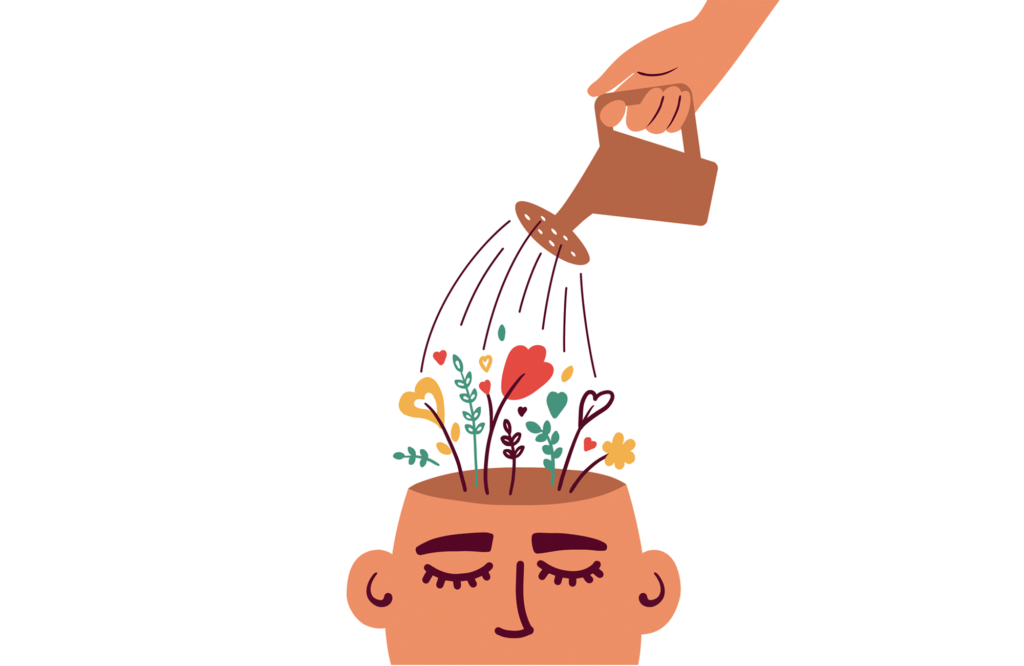Introduction
Mental health is an integral part of everybody’s lives since it significantly affects cognitive, emotional, and behavioral well-being. Today and even more so after the pandemic, mental health conditions such as anxiety, depression, suicidal thoughts, insomnia, and stress are on the rise. Therefore, ways to cope and improve one’s mental health have become even more essential. Regrettably, hesitation, societal stigma, and fear of embarrassment due to mental health make many people feel reluctant to seek help. Thankfully, because of the rapid continuous development in technology, there are many tools and resources these days that contribute to positive mental health and often offer initial support without even requiring a person-to-person encounter. Let us talk about some of the mental health apps and wearable technologies that might help you feel better and stay in control of your mental well-being.

Mental Health Applications:
Interest in mental health applications is growing fast because they allow easy and convenient methods for maintaining mental health. A mental health app provides resources for assessing, relieving, enhancing, and managing many aspects of mental health and holistic fitness. Such apps offer a range of services, including guided meditation, mindfulness exercises, mood tracking, and even online therapy sessions.
Popular Apps: Some popular apps that are at the very forefront and are in the interest of mental health support include Headspace, Calm, and Better Help. Headspace and Calm focus on meditation and mindfulness with different classes of guided sessions to try and reduce one’s stress levels, improve the quality of sleep, and concentrate better. Better Help links users with licensed therapists for online counseling. Other noteworthy apps would include MindShift CBT, Insight Timer, Mindfulness Coach, Happify, and Talkspace Therapy and Counseling etc. Most of the above-mentioned apps specialize in a single problem, therefore they are easier to use and less complicated. MindShift deals with anxiety and all kinds of related problems, whereas Insight Timer, as the latter part of the name suggests, is all about meditation. Happify is indeed in a special place among all of them, having a rather unusual formula of games and activities to keep up a good mood and well-being. On the other hand, Talkspace provides more basic support for those too timid or unsure about their difficulties; they are provided messaging-only therapy to ease this very first step. In addition, MindShift CBT, Insight Timer, and Mindfulness Coach stand out as such applications that could be used for free without subscription fees. Others would usually do bits for free, and then a subscription unlocks the full content or offers free trials.
How to Choose the Right App:
Looking for the right mental health app, consider what others say in the reviews and recommendations from experts. Consider the most relevant features, such as anxiety management via relaxation techniques and CBT exercises. Look out for applications that allow personalization of content related to your mental health concerns. Check affordability in terms of free trials and subscription costs. Prioritize those apps that have the privacy and security of users up front and center and those that are overt about how they handle personal information. By weighing these factors—reviews, recommendations, features, personalization, affordability, and privacy—you’re better positioned to make a decision that will help
Drive your mental well-being journey

Benefits: There are several benefits associated with mental health apps, in that they offer solutions to the most common barriers that limit people from receiving traditional mental health services due to social stigma and matters of affordability. These apps provide users with immediate access to a host of mental health resources and support, thereby letting users manage their well-being discreetly and conveniently. Equipped with tools for stress reduction, improving sleep, coping with anxiety and depression, and suicidal tendencies, these apps provide round-the-clock support. Unlike doctors who may not be available 24 hours a day, this makes it especially priceless during those moments of crisis when one needs them the most. Some apps, such as MindShift CBT, focus on specific issues like anxiety management, while Insight Timer has different meditation practices to help with stress. Their availability 24/7 makes them accessible to people who are on the go or need someone to talk to outside of regular office hours. With personally curated features and progress tracking, such applications are good enough to aid long-term mental health management and wellness.
Conclusion
Where mental health challenges are surging, especially post-pandemic, the advent of mental health apps happens to be a silver lining. These tools fill the gap created by societal stigma and fear of seeking help with an approachable, affordable, and flexible way to manage mental well-being. There is a mental health app designed for each one of us, whether it is about meditation, tools for mood tracking, or even professional therapy. Anything from mindfulness sessions on Headspace and Calm to online therapy with Better Help, all options are available. Out of the ocean of existing apps, make sure to know what users say, expert recommendations, personalization, and privacy considerations to find the one that works best for you. These digital resources, if embraced, help one take charge in ensuring and improving mental health: there is always help at your fingertips whenever you need it.

